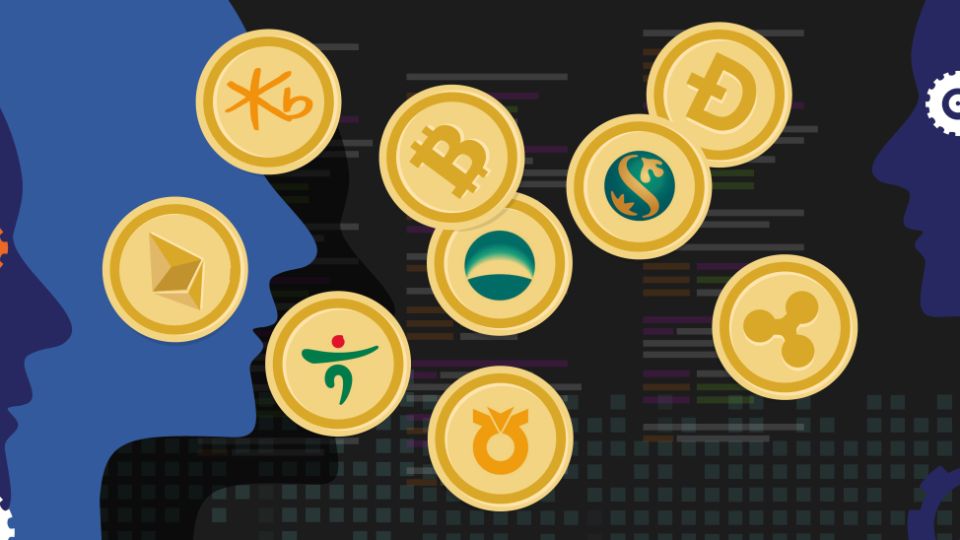July 27, 2022
SEOUL – South Korea’s top financial regulator is looking to allow banks to start trading cryptocurrencies, but experts are wary of whether the agency is as committed to protecting consumers along the way, saying it has so far shown little interest in pursuing it.
The latest plan the Financial Services Commission revealed last Tuesday is part of its larger deregulation initiative to loosen rules that prevent banks from expanding into businesses the agency has not authorized, such as initial coin offerings.
Until now, banks have made investments in companies providing crypto custody services — the most they can do when it comes to the crypto business unless the authorities rewrite the rules.
“Regulation should not be why financial companies can’t venture into something new. It’s a new era where the line between financial and nonfinancial is blurry,” FSC Chairman Kim Joo-hyun said last Tuesday at a meeting on deregulation, referring to crypto trading as one of the emerging businesses.
Kim was the agency’s chief policymaker who made it easier for nonfinancial companies to hold a stake in banks in 2009. At the time, the National Assembly had revised the banking rules for the first time since 1995 when they took effect. The parliament lifted the shareholding limit, but not as much as Kim had suggested.
Seo Ji-yong, a business professor at Sangmyung University, said the agency this time looked overly bent on lifting rules all at once, when it should be equally invested in discussing how consumers would be protected from negative changes when it eases the 27-year-old rules again.
“It’s a big shift, but there seems to be little discussion on a comprehensive legal framework — a bigger picture showing, for example, how banks would oversee crypto trading, what would be off-limits and when consumers can file complaints,” Seo said.
Seo added that implementing such a system requires the agency to reach out to other authorities like the Fair Trade Commission, the top antitrust watchdog, which knows better how to keep consumers safe from unfair business practices. The agency has not detailed any intergovernmental efforts to back its plan.
“Once the framework is pieced together, banks can make their crypto investments,” Seo said, noting he welcomes the move because banks have relied too long on the money they earn from loans and deposits when their global peers have found other ways to earn money.
“A new revenue stream is a plus. Banks won’t have to get fixated on high rates to earn interest,” Seo said, referring to how banks have kept lending rates higher than deposit rates, with money earned from the difference serving as a key source of their net interest income.
But the fact that the lenders have so long relied on loans and deposits suggests that they are not best equipped to deal with added volatility crypto trading entails, said Sung Tae-yoon, an economics professor at Yonsei University.
“Deposits are like public funds pooled together, but cryptocurrencies are investments and have ups and downs, which mean volatility. What if that hits banks so hard that the government has no choice but to intervene?” Sung asked.
Debating whether such banks are still “in the public domain,” and therefore whether a government bailout is warranted is beside the point, Sung added, saying the customers who stand to take heavy losses — almost every Korean — will be put at unnecessary risk once banks start crypto services themselves.
“To think that banks will spiral out of control so quickly and helplessly is very speculative, and if that’s really true, authorities should know better,” an official at one of the five major banks in Korea said, requesting anonymity due to the sensitivity of the topic.
Banks will do what they can to manage volatility involving the digital currency as it serves their “best interest” — which is to keep making more money. Crypto trading would help increase the synergy between financial and nonfinancial businesses, the official added, saying betting against it was premature and even naive.
It is uncertain where public support lies, but the latest bank fraud scandals involving a local cryptocurrency exchange are adding to worries that banks are underprepared to manage crypto operations.
According to the FSC, suspicious remittances totaling about 1 trillion won ($764 million) for Shinhan Bank and 800 billion won for Woori Bank trace back to an undisclosed crypto exchange. Shinhan and Woori are two of the five largest banks in Korea.
The top financial watchdog said it was looking into whether the transfers were linked to money laundering.


